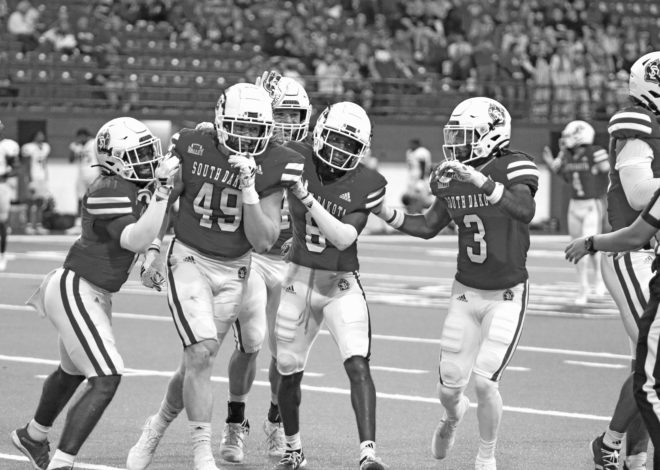COLUMN: Hall voters need to re-evaluate
The 2013 class of the Pro Football Hall of Fame will be a worthy group of inductees. Bill Parcells, Larry Allen, Curley Culp, Jonathan Ogden, Cris Carter, Warren Sapp and Dave Robinson certainly belong in the HOF. However, it is the names that are still absent from the list that highlights a culture of trivialization of arguably the game’s most underappreciated element. Steve Tasker, Gary Anderson, Ray Guy and other worthy candidates are still absent. Their only crime: they all played special teams.
Football is a multi-dimensional game. Offense, defense and special teams represent the three basic elements of the game. The failure of one of them during a game puts the entire team’s chances of winning at risk. And yet there is a persistent belief among some HOF voters that special teams players aren’t worthy of induction because their positions aren’t “as tough” as offensive, defensive, coaching or ownership positions on a team. As of now, only one full-time placekicker, Jan Stenerud, of the Kansas City Chiefs, (1967-1985) is enshrined. No other full-time special teams players are included. There are many examples of why this needs to change.
One of the great standouts on special teams is Steve Tasker. Originally drafted by the Houston Oilers in 1985, Tasker eventually found a home with the Buffalo Bills. Though listed as a wide receiver, Tasker played the majority of his time as a “gunner,” a player whose main purpose is to run down the sidelines during kicks/punts in an attempt to tackle the return man. The NFL Network’s “Top Ten” ranked him ninth on their “Top Ten Players Not in the Hall of Fame” episode in 2009. According to the show, Bills coach Marv Levy once said Tasker was the most important person on the team and turned down future Hall of Fame quarterback Jim Kelly’s calls to play him as a full-time receiver. Tasker was named to seven Pro Bowls and named All-Pro seven times. During this time, the Buffalo Bills won four AFC Championships and were one of the most dominant teams of the early ‘90s.
Or take the example of punter Ray Guy. Guy was the only punter drafted in the first round of an NFL Draft. And he would live up to the pick, playing 14 seasons with the Oakland/Los Angeles Raiders, making seven Pro Bowls, with eight All-Pro selections, six of which were First-team. The Raiders also won three Super Bowls during this time. The team has not won one since his retirement following the 1986 season.
Or there’s the example of Gary Anderson. Anderson, who was born in South Africa and dreamed of playing a whole different type of football in Europe, found himself immigrating to America and becoming an outstanding placekicker. He had his best years with the Pittsburgh Steelers and Minnesota Vikings. In 1998, he was a perfect 35/35 on field goals in the regular season. The Steelers, who rarely retire numbers, have his #1 on a list of numbers that are no longer issued. This list includes Joe Greene, Terry Bradshaw, Franco Harris and other Steeler greats. He held the league scoring record from 2000 through 2006 with 2,434 points. He is only surpassed by fellow placekicker and HOF shutout Morten Andersen.
And yet HOF voters such as Howard Balzer have stated a special teams player has no place in the HOF because they are not an “every down player.”
Atlanta Journal-Constitution writer Terence Moore took his criticism a little further:
“Special team guys, they’re not Hall of Famers,” Moore said. “You’ve got to play the game totally. When you talk about the Hall of Fame, you’re talking about a very special place and to put a kicker in there or a special teams guy, you’re basically just spitting on the face of Dick Butkus.”
Quite frankly, this is absurd. Let’s take the example of Hall of Famer and Chicago Bears great Dick Butkus. One of the league’s greatest linebackers, Butkus played for the Bears from 1965-1973, asserting himself as one of the most feared players of his time. But, despite playing with greats such as Gale Sayers and Mike Ditka and with coaching legend George Halas, Butkus never played in a championship game. In fact, the team never saw the post-season during these years and only posted two winning seasons. The team finished 1-13 in 1969. Now let’s say somehow one or all of the players I mentioned earlier had played for the Bears during Butkus’ tenure at the levels they did in their own times. I can almost guarantee if any of these guys were teammates of Butkus’, and would’ve put Chicago in better position to win, he wouldn’t take their inclusion in the HOF as an insult, but rather personally advocate for their induction. In that case, who is spitting in the face of Dick Butkus?
The Hall of Fame’s purpose is to highlight those who have gone above and beyond their duties in professional football. It’s about time all worthy candidates are recognized.

